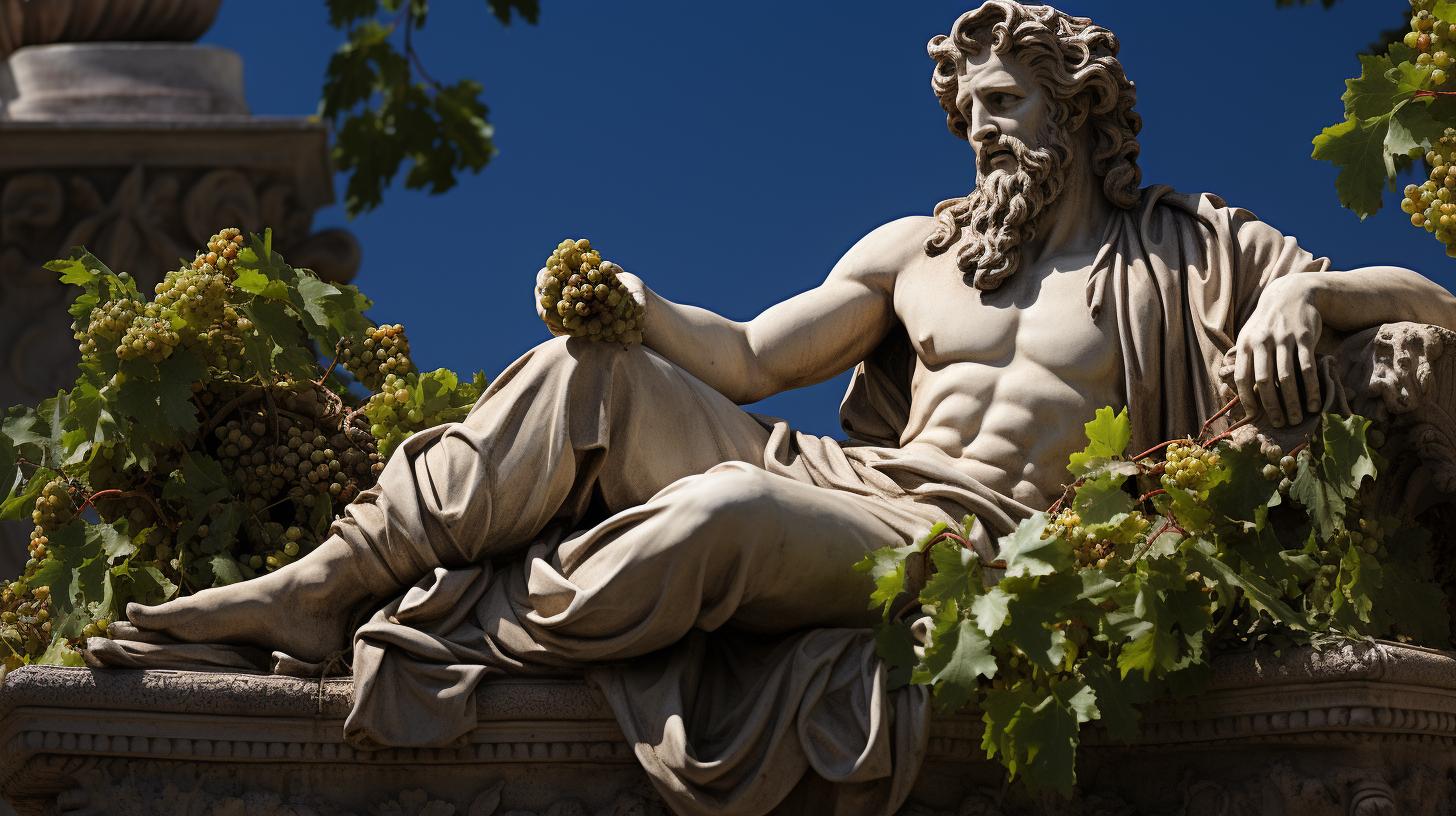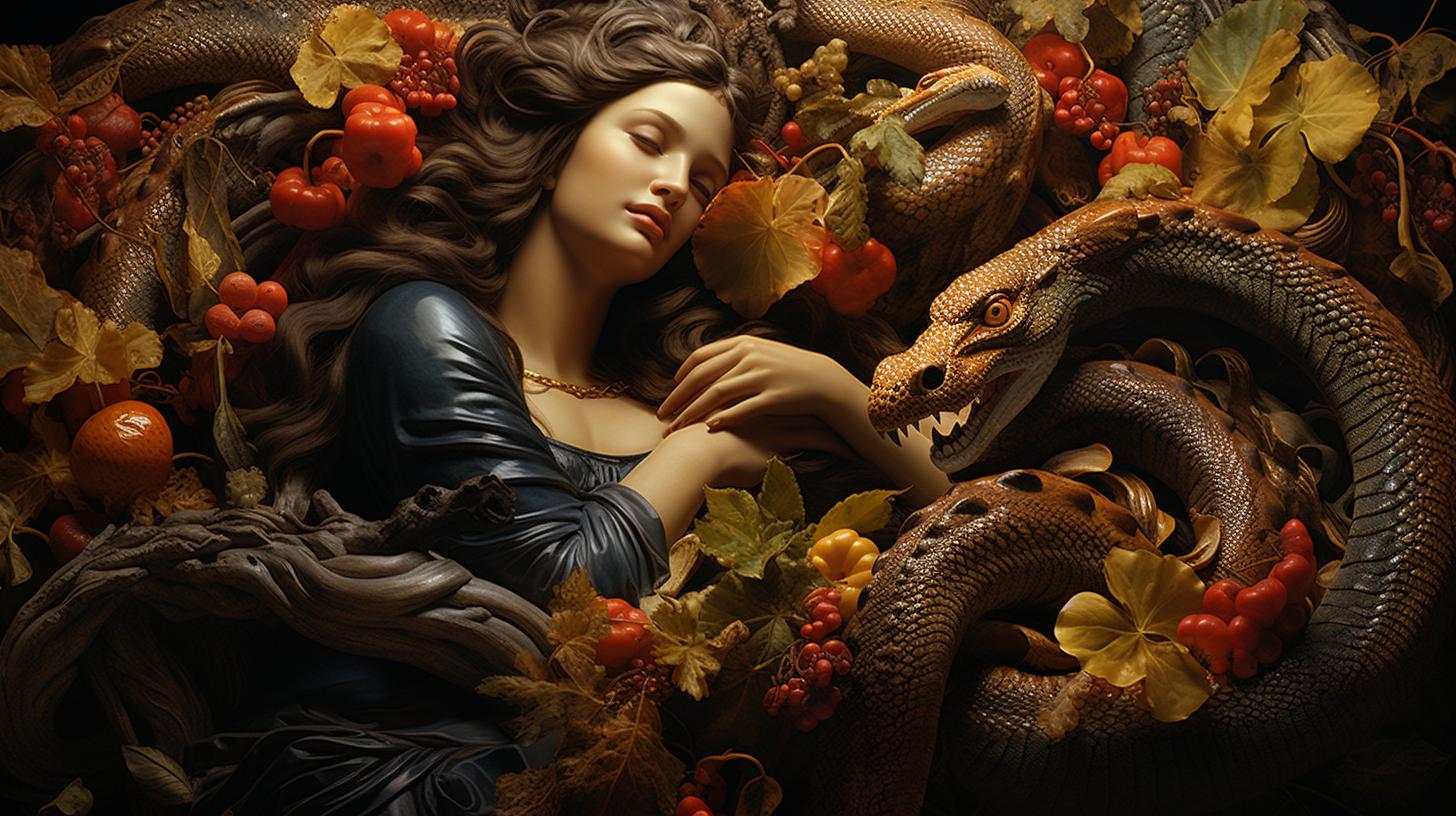Priapus: The Roman God of Fertility and Agriculture

Priapus, the Roman god of fertility, was revered for his role in ensuring bountiful harvests and the protection of gardens and crops. Depicted with a grotesquely deformed human form and a large phallus, Priapus symbolized generation and fecundity.
His worship spread throughout the Greek world and continued into the Roman era, with statues placed in sacred spaces. Priapus held significance in various aspects of ancient Roman society, including literature, religion, and even medicine.
Today, his legacy endures in popular culture and references, exemplifying his continued relevance.
Priapus in Greek Mythology
Priapus, a prominent figure in Greek mythology, embodies the essence of fertility and abundance. This section explores his origin, depictions, parentage, and role in the domain of fertility, as well as his association with other gods such as Dionysus and Bacchus.
Origins and Depictions
Priapus’s story finds its roots in ancient Greek mythology.
He was known for his caricatured human form, characterized by grotesque deformations, and an enormous phallus. Priapus’s unique representation symbolized his connection to fertility and was often depicted in art and sculptures.
Parentage and Role in Fertility
According to different ancient sources, Priapus was believed to be the son of Aphrodite, the goddess of love. The identity of his father varied from one account to another. According to one version, Hera cursed Priapus with oversized genitals due to Aphrodite’s promiscuity.
Priapus, raised by shepherds, found favor with Hera and became the dance instructor of the war god Ares.
In Greek mythology, Priapus played a crucial role in fertility and was revered as the god who protected gardens, livestock, fruit-bearing plants, and male genitalia.
Farmers worshipped Priapus, seeking bountiful grain and vegetable harvests through his intercession.
Association with Dionysus and Bacchus
Priapus shares associations with other gods in Greek and Roman mythology. He is often mentioned in connection with Dionysus, the god of wine, revelry, and fertility. Priapus’s role as a protector of gardens and crops intertwines with the attributes of Bacchus, the Roman god of agriculture, wine, and fertility, who is also known as the son of Jupiter and Semele.
- Prominent features of Priapus in Greek mythology:
Priapus in Roman Mythology
Priapus, the Roman god of fertility, held a significant role in the religious and cultural practices of ancient Rome.
This section explores the various aspects of Priapus’ presence in Roman mythology, including his spread and cult worship, his role as a guardian of gardens and crops, and the symbolism associated with his statues.
Spread and Cult Worship
Priapus’ cult worship originated in the region around the Hellespont and gradually spread throughout the Greek world, especially due to the conquests of Alexander the Great. In the Roman era, his worship continued to flourish, finding devotees who sought abundant harvests and fertility.
Statues of Priapus were erected in sacred places, serving as focal points for religious rituals and supplications.
Guardian of Gardens and Crops
Priapus was revered as a guardian deity of gardens, fields, and crops. His association with fertility extended to the cultivation of plants and the prosperity of agricultural endeavors. Farmers and cultivators turned to Priapus, hopeful that his presence would ensure bountiful yields and protect their cultivated lands from intruders.
The Symbolism of Priapus Statues
The statues of Priapus, with their distinctive portrayal of a grotesquely deformed human form and a prominently oversized phallus, held symbolic significance. The colossal phallus represented the power of generation and fecundity, further emphasizing Priapus’ association with fertility.
These statues were placed strategically in gardens and fields to invoke Priapus’ protective presence and ensure the success of harvests.
Through the spread of his worship, Priapus established his prominence in Roman mythology, particularly in his role as a guardian of agricultural prosperity.
The symbolism of his statues further reinforced the belief in his power to bestow fertility and abundance. Priapus’ lasting influence continues to be recognized and revered in various aspects of culture and history till this day.
Priapus in Ancient Roman Society
Priapus played a significant role in the ancient Roman society, influencing various aspects such as literature, religion, and even medicine. Let’s explore how Priapus’s presence manifested in these domains.
Priapic Poetry (Priapeas)
Priapus inspired the creation of poetic works known as Priapeas, which gained popularity in Rome towards the end of the Republican era.
These poems, often composed as humorous and satirical verses, celebrated Priapus’s sexuality and exaggerated physical attributes. Priapeas became a distinctive element of Roman literary culture, highlighting Priapus’s impact on artistic expression.
Influence on Literature, Religion, and Medicine
Beyond the realm of poetry, Priapus also exerted influence on Roman literature, religion, and medicine. His image and symbolism were incorporated into various written works, showcasing his role as a deity of fertility and protection.
Additionally, Priapus’s presence extended to religious practices, with his statues serving as guardians of households, fields, and crops, warding off intruders. In the realm of medicine, Priapus’s name is associated with the condition called priapism, which refers to prolonged and painful erections.
Priapus in Popular Culture and History
Priapus’s legacy continued to resonate through the centuries, leaving a remarkable imprint on popular culture and history. References and allusions to Priapus can be found in various forms of entertainment, literature, and art.
His prominence in ancient Roman society ensured his enduring recognition in later periods, contributing to his continuous presence in cultural discourse.
Priapus Today and Continued Relevance
As we examine the enduring legacy of Priapus, the Roman god of fertility, it becomes evident that his influence has transcended ancient times and continues to resonate in various aspects of modern culture.
From references in literature and art to his impact on medical terminology, Priapus maintains a notable presence.
Legacy in Modern Culture and References
The figure of Priapus has permeated modern culture, appearing in literature, art, and popular media. References to him can be found in contemporary works of fiction, where authors draw inspiration from ancient myths.
Priapus’ distinctive physical portrayal, with his exaggerated genitalia, has been the subject of artistic interpretations in paintings and sculptures.
In popular media, Priapus occasionally appears as a character, often used for comedic effect or as a symbol of fertility and virility.
His image, though often caricatured, remains recognizable to many.
Impact and Perception of Priapus’ Character
Priapus’ character has evolved over time, reflecting changing societal norms and attitudes. While in ancient times, he was revered as a protector of gardens and a symbol of fertility, today he is often depicted in a more playful or humorous light.
His exaggerated physical attributes have led to his association with sexual prowess, invoking both fascination and amusement.
Perceptions of Priapus vary among individuals and cultures. Some may view him as a reminder of ancient beliefs and traditions, while others appreciate his presence as a cultural icon.
Regardless of personal interpretations, Priapus’ character continues to provoke curiosity and spark discussions on topics related to sexuality and mythology.
The Legacy of Priapus in Medical Terminology
The name “Priapism” stems from the enduring influence of Priapus in the field of medicine. Priapism refers to a persistent and often painful erection unrelated to sexual arousal, deriving its name from the god associated with perpetual virility.
Though the condition itself can be concerning, the medical term Priapism serves as a reminder of the enduring impact of ancient mythology on modern scientific language.
.




















